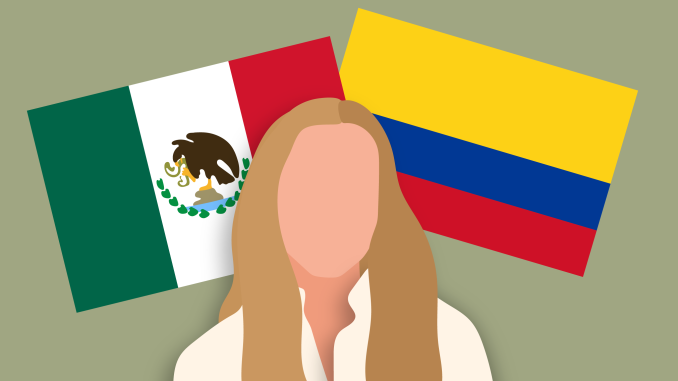
Growing up, I thought being mixed was the coolest thing ever, in the most superficial way possible.
When I was younger, I thought my heritage meant family parties and Vicks VapoRub because of my Hispanic family’s ability to party all night and their obsessive use of VapoRub for any type of illness. That was as cultural as it got.
With a Hispanic dad and a Jewish mom, I used to tell my cousins that technically, if I was religiously Jewish, I could have a bat mitzvah, a Quinceañera and a Sweet 16. I also used to tell my classmates that Shakira was my cousin because we are both Colombian.
Despite my evident realization that I was mixed, I wasn’t raised in a Hispanic household at all. Everything and everyone I knew was white.
As a child, my dad spent his summers at his cousin’s house in Mexico, while I spent mine in New Jersey. My dad never taught me how to speak Spanish, and I definitely cannot dance.
I never celebrated any holidays like Cinco de Mayo or Día de la Independencia.
My parents never saw these things as important because I grew up surrounded by my mom’s family, who were all white and spoke Hebrew, while most of my dad’s family still lived in Mexico.
Every year during Hispanic Heritage Month from Sept. 15 to Oct. 15, I’ve refused to celebrate because I’ve always felt that the month was not created for people like me, who don’t look Hispanic or can’t speak Spanish.
Without these key attributes, I’ve always felt like I was cheating the system. Even telling someone that I’m half-Hispanic seemed like a lie because I was never exposed to that side of my family. It has always felt like I can’t claim that part of me.
Having one part of my heritage completely prioritized more than another for my whole life confused me, and I never really knew who I was. This is something no one ever tells you about being mixed.
I’ve always felt guilty during Hispanic Heritage month because I don’t know much about my own culture, and didn’t attempt to break away from my upbringing to learn more about my culture. It felt like my grandparents were looking down on me, criticizing every step I took for claiming my Hispanic heritage without knowing enough about it.
It wasn’t until the end of my senior year of high school someone attempted to insult me by asking which landscaping company my dad worked for, a play on the Hispanic stereotype of Mexicans being farmers, when I actually started to really care about where my family comes from.
It was like something snapped inside me, and I suddenly wanted to learn as much about my dad’s culture as possible.
During the beginning of my freshman year, the first thing I did was download Duolingo, because I thought it would magically make me seem more Hispanic. Then I listened to only Spanish music and watched TV shows in Spanish to help my Duolingo skills.
I was completely obsessed with trying to make up for all of the missed years I spent ignoring that side of my culture.
After futile attempts to become bilingual through Duolingo and Spanish music, I’ve learned that I don’t need to speak Spanish or be able to dance in order to be proud of my heritage. I can just admire my family, where we come from and our accomplishments.
Growing up with a mixed background can be complex and challenging, but I’ve learned that I have to create an identity for myself, and not go by one that other people give me.
This year’s Hispanic Heritage Month, I’m trying to be kinder to myself in figuring out who I am. For other people who are mixed, finding your own identity is something that can take years, and I’m no exception to that.


Be the first to comment